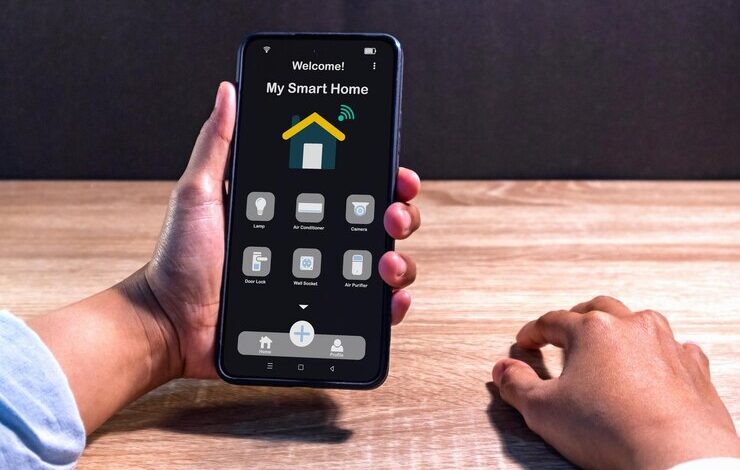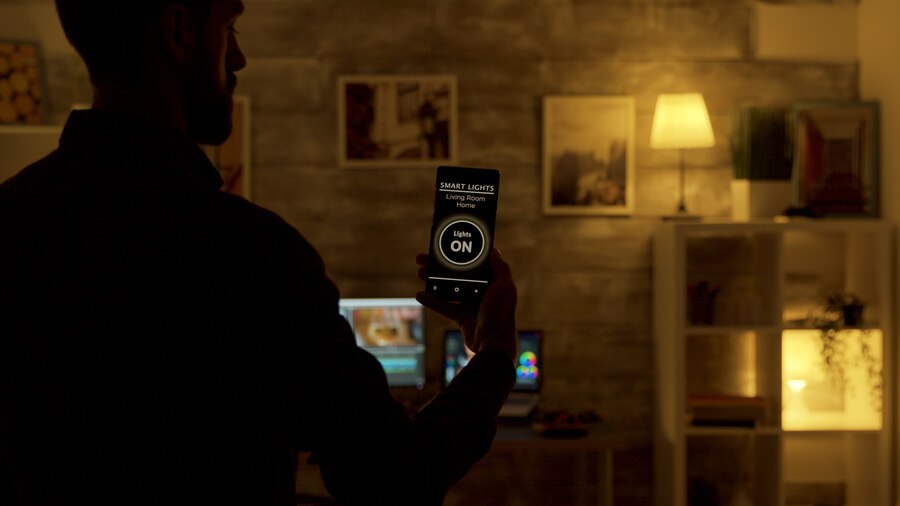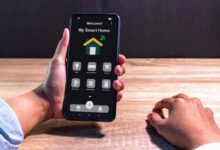Is One UI Home a Spy App? A Comprehensive Analysis

Introduction
In today’s digital age, privacy and security are paramount concerns for smartphone users. As technology advances, so do the functionalities and capabilities of mobile applications. Among the myriad of apps that reside on our devices, One UI Home—the user interface developed by Samsung—often raises questions regarding its data collection practices. Many users wonder whether One UI Home could be classified as a spy app, gathering personal information without their consent. This article delves into what One UI Home is, how it functions, and whether it operates under the umbrella of spy applications.
What is one ui home a spy app?
is one ui home a spy app is the default home screen application for Samsung smartphones and tablets, designed to enhance the user experience through a streamlined interface. This application allows users to customize their home screens, manage applications, and navigate their devices with ease. Here are some of its key features:
1. Customization Options
One of the standout features of One UI Home is its extensive customization options. Users can modify themes, choose wallpapers, and arrange app icons to create a personalized home screen. This flexibility empowers users to tailor their devices to reflect their personal styles and preferences.
2. App Drawer and Organization
The app drawer feature in One UI Home provides users with a centralized location to access all installed applications. This helps in organizing apps efficiently, allowing for a clean and user-friendly home screen. Users can sort apps into folders and access them with just a swipe, enhancing navigation.
3. Widgets
One UI Home supports various widgets that provide quick access to information and functions directly from the home screen. Whether it’s weather updates, calendar events, or news alerts, widgets help users stay informed at a glance without opening individual apps.
4. Navigation Features
The interface includes intuitive navigation features, such as gesture controls and a simplified layout, to improve accessibility. Users can navigate through their devices with ease, making the overall experience more enjoyable.
5. Integration with Samsung Services
One UI Home seamlessly integrates with other Samsung applications and services, offering a cohesive experience across the device. This integration allows for features like Bixby, Samsung Pay, and various productivity tools to function smoothly together.
The Spy App Debate: What Makes an App a Spy App?
To determine whether One UI Home could be classified as a spy app, we first need to define the characteristics of such applications. Spy apps are typically known for:
- Collecting Personal Information: They gather sensitive data, including messages, call logs, and location information, often without the user’s explicit consent.
- Running in the Background: Spy apps operate covertly, making it difficult for users to detect their presence on the device.
- Transmitting Data: These applications send collected information to remote servers, where it can be accessed by unauthorized parties.
With these criteria in mind, let’s analyze One UI Home against them.
Does One UI Home Collect Personal Data?
Samsung, as a leading technology company, emphasizes user privacy and data protection. However, like many mobile applications, One UI Home does access certain data to enhance user experience. Here’s a closer look at its data collection practices:
1. Permissions
When users install One UI Home, the application requests specific permissions to function optimally. These permissions may include access to contacts, storage, and location services. While this may seem concerning, it is standard for many user interface applications, as it allows for enhanced usability and personalization.
2. Data Usage
According to Samsung’s privacy policy, the company may collect user data to improve services and provide personalized experiences. This can include data about app usage, device settings, and anonymous information that helps Samsung understand user interactions with their devices.
3. User Control
Users have significant control over their privacy settings. Samsung devices allow users to manage permissions for One UI Home and other applications, giving them the ability to limit data collection according to their comfort levels. This transparency empowers users to make informed decisions about their data.
4. Transparency in Policies
Samsung strives for transparency regarding its data collection practices. The company provides detailed privacy policies that explain how data is collected, used, and protected. Understanding these policies is crucial for users to grasp what information is being gathered and how it is utilized.
Security Features of One UI Home
Samsung has implemented a range of security measures to protect user data on its devices. Some notable features include:
1. Samsung Knox
Samsung Knox is a robust security framework that safeguards sensitive information on devices. It offers features such as data encryption, secure boot, and real-time protection against malware. Knox provides an additional layer of security, ensuring that user data remains protected from unauthorized access.
2. Regular Software Updates
Samsung frequently releases software updates that include security patches and enhancements. Keeping One UI Home and the device’s software up to date is crucial for mitigating potential vulnerabilities. Regular updates ensure that users benefit from the latest security improvements.
3. Privacy Settings
Samsung devices come equipped with built-in privacy settings that allow users to manage permissions for One UI Home and other apps. Users can revoke access to sensitive data if they are uncomfortable sharing it, promoting a more secure user environment.
User Concerns and Misconceptions
Despite Samsung’s efforts to prioritize user privacy, certain concerns regarding One UI Home persist. Here are some common misconceptions:
1. Background Activity
Some users fear that One UI Home operates silently in the background, collecting data without their knowledge. While One UI Home does run in the background to maintain the user interface, it does not engage in unauthorized data collection. Users can monitor active applications and manage background activity through device settings.
2. Comparison to Spy Apps
It is essential to differentiate the functionality of One UI Home from that of actual spy apps. Unlike spy applications, One UI Home does not aim to covertly collect sensitive personal information or send it to unauthorized parties. Its data collection practices are standard for applications that enhance user experience.
3. Privacy Policies and User Awareness
Some users may not take the time to review Samsung’s privacy policies. Understanding these policies is critical for users to know how their data is handled. Samsung aims for transparency in its data practices, but users must actively engage with this information.
The Role of User Awareness
In an increasingly digital world, user awareness is vital for protecting personal information. Here are several steps users can take to safeguard their privacy while using One UI Home and other applications:
1. Review Permissions Regularly
Users should periodically review the permissions granted to One UI Home and other installed applications. If an app requests access to information that seems unnecessary for its intended functionality, users should reconsider those permissions.
2. Utilize Privacy Settings
Samsung provides privacy settings that allow users to control data sharing. Familiarizing oneself with these settings can empower users to manage their privacy effectively, ensuring they only share data they are comfortable with.
3. Stay Informed About Privacy Issues
Keeping up to date with news regarding privacy and data protection can help users make informed decisions. Being aware of potential vulnerabilities or breaches allows users to take proactive measures to protect their information.
4. Educate Friends and Family
Sharing knowledge about privacy practices can promote a more privacy-conscious environment among friends and family. Encouraging discussions about digital security can help raise awareness about the importance of protecting personal information.
Potential Risks and Challenges
While One UI Home offers many benefits, there are potential risks and challenges users should be aware of:
1. Market Volatility and Data Risks
The digital landscape is continually evolving, and with it comes the risk of data breaches and security vulnerabilities. Users should remain vigilant and proactive in monitoring their devices for any unusual activity or unauthorized access.
2. User Responsibility
Ultimately, the responsibility for managing privacy and security rests with the user. Being proactive about permissions, settings, and data sharing can significantly mitigate risks associated with mobile applications.
3. Misunderstanding App Functions
Users may misinterpret the functionalities of One UI Home, leading to unnecessary concerns. A clear understanding of the app’s purpose and practices can help alleviate fears regarding data collection and privacy.

The Future of One UI Home and Privacy
As technology advances, so too will the features and capabilities of One UI Home. Samsung has made strides in prioritizing user privacy, but the company must continue to adapt to evolving concerns about data security. Potential developments may include:
1. Enhanced Privacy Features
Future iterations of One UI Home could introduce more robust privacy features, allowing users greater control over their data. Enhanced transparency and customization options could further empower users to manage their privacy effectively.
2. User Education Initiatives
Samsung may implement user education initiatives to help individuals understand their data privacy rights and how to protect their information. Providing accessible resources and tutorials can promote a more informed user base.
3. Community Engagement
Engaging with the user community to gather feedback on privacy features can help Samsung improve its offerings. Listening to user concerns and suggestions can lead to a more user-friendly and secure interface.
Conclusion
In summary, while is one ui home a spy app does collect certain data to enhance the user experience, it does not operate as a spy app. Samsung emphasizes user privacy and offers tools to manage data collection and permissions effectively. By understanding the nature of One UI Home and its data practices, users can navigate their Samsung devices with confidence and peace of mind.
Ultimately, it is essential for users to remain informed and proactive in protecting their privacy. Leveraging the security features provided by Samsung and regularly reviewing app permissions will help users enjoy a personalized mobile experience without compromising their personal information. In a rapidly changing digital landscape, staying educated about privacy and security is vital for all smartphone users, ensuring that they can use their devices safely and confidently.


